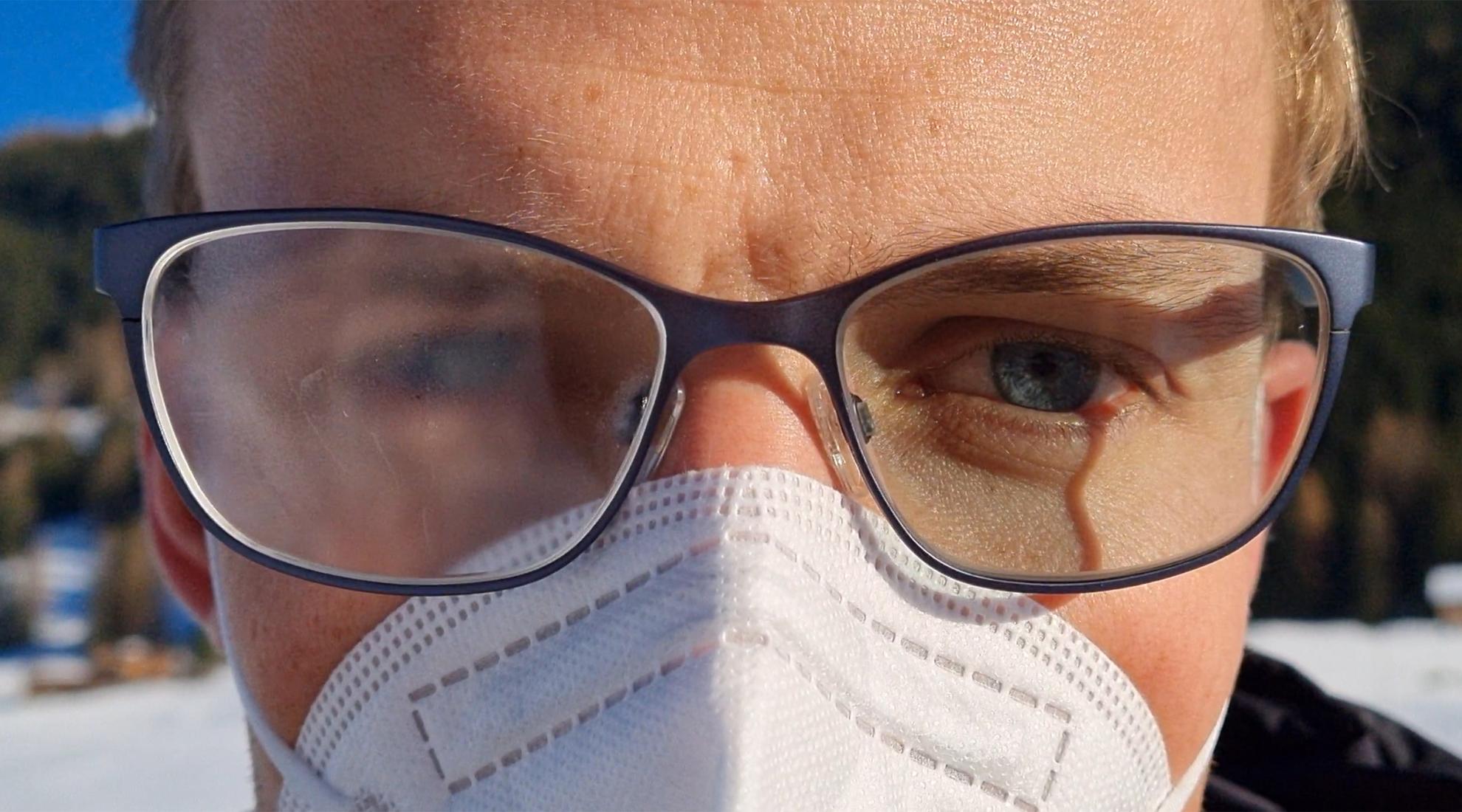Clear view for wearers of glasses

Foggy glasses are a real inconvenience, exacerbated by masks and the cold weather. Researchers have now developed a special kind of heater to ensure clear vision.
Foggy glasses could soon be a thing of the past, promise researchers from ETH Zurich. Using a razor-thin coating of gold, they have succeeded in developing a kind of heating system for spectacle lenses that generates enough heat when exposed to sunlight to prevent the lenses from fogging up. According to the researchers, the technology is also suitable for car windshields or other surfaces, such as mirrors or optical sensors, where vision can be obstructed in unfavourable conditions.
Heating up the surface
To apply the gold layer, the Swiss researchers use established technology that is already used in industry. In a cleanroom and using vapour deposition under vacuum, minute amounts of gold are deposited onto the surface. According to the researchers, the effect is comparable to heating a rear window in a car, but it does not consume any electricity and is therefore not only more efficient, but also more universally applicable. The new method heats the surface by up to 8 °C with the help of infrared radiation absorption, thus preventing humidity-induced condensation from forming on the glass in the first place.
Thin layers of gold
The coating presented recently is the result of several years of research and is the thinnest and most inconspicuous coating to date. The gold coating is said to be completely transparent and pliable. The entire layer comprises extremely thin clusters of gold sandwiched between two ultrathin layers of titanium oxide, an electrically insulating material. These two outer layers increase the efficacy of the heating effect. The top layer of titanium oxide acts as a finish that protects the gold layer from wear. ETH Zurich has applied for a patent for the coating.
Absorbing infrared radiation
Although the coating is made of real gold particles, relatively little material is needed for the vapour deposition of surfaces, not adding much to the price of regular glasses. And anyone who is justifiably concerned that the new coating technology may require rooms to be heated need not worry:
The pane coating absorbs infrared rays from the sun, which specifically heats the pane and prevents the radiation from reaching the inside of the car or building. As a result, the interior heats up even less than it would without the coating.




